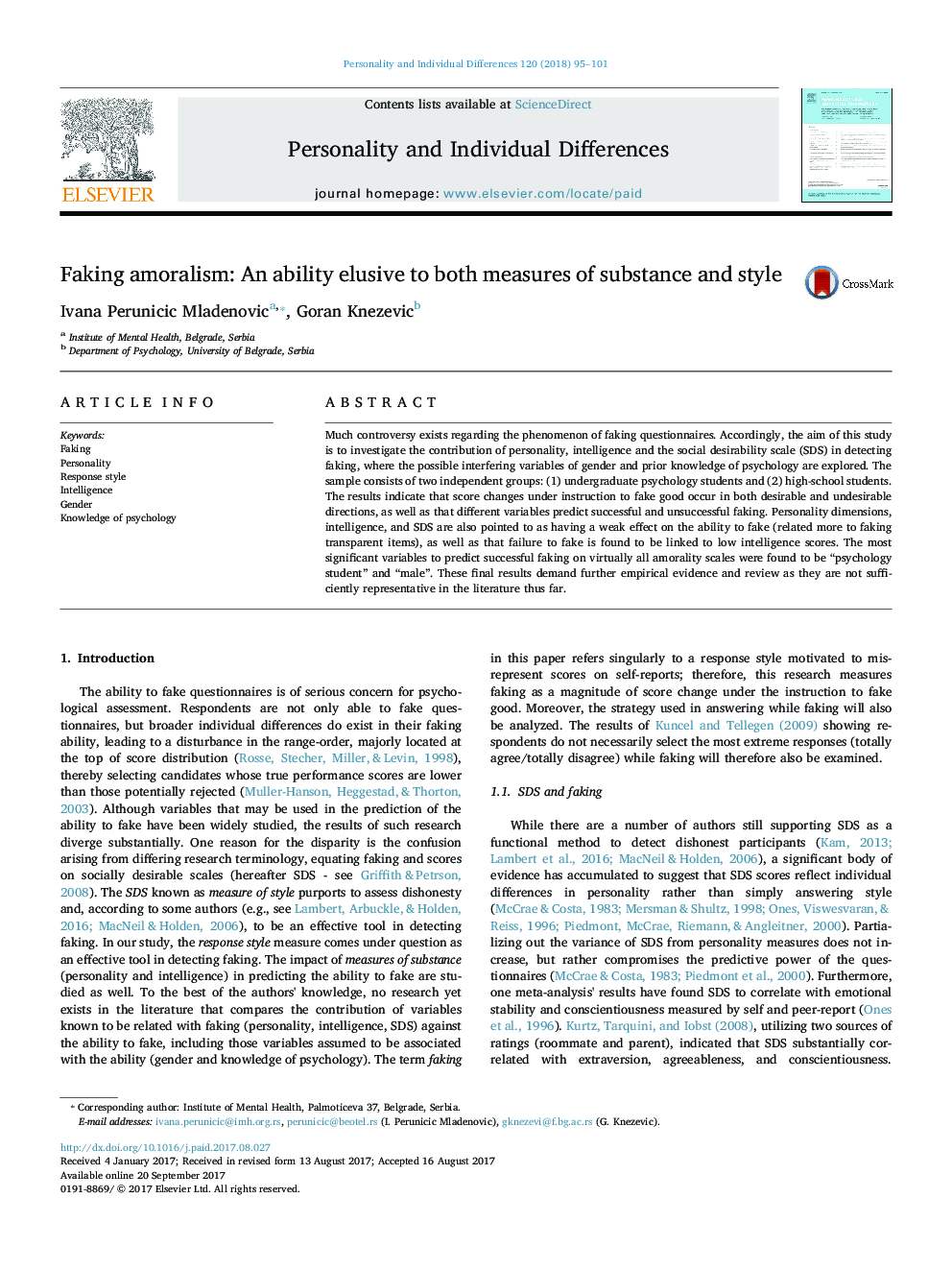| Article ID | Journal | Published Year | Pages | File Type |
|---|---|---|---|---|
| 5035521 | Personality and Individual Differences | 2018 | 7 Pages |
â¢Individual differences in the ability to fake are broad.â¢Detecting the ability to fake is elusive to the measures of substance and style.â¢Failure in faking is more related to low scores on intelligence.â¢Prior knowledge of psychology may assist participants in faking.â¢Males were found to be better at faking.
Much controversy exists regarding the phenomenon of faking questionnaires. Accordingly, the aim of this study is to investigate the contribution of personality, intelligence and the social desirability scale (SDS) in detecting faking, where the possible interfering variables of gender and prior knowledge of psychology are explored. The sample consists of two independent groups: (1) undergraduate psychology students and (2) high-school students. The results indicate that score changes under instruction to fake good occur in both desirable and undesirable directions, as well as that different variables predict successful and unsuccessful faking. Personality dimensions, intelligence, and SDS are also pointed to as having a weak effect on the ability to fake (related more to faking transparent items), as well as that failure to fake is found to be linked to low intelligence scores. The most significant variables to predict successful faking on virtually all amorality scales were found to be “psychology student” and “male”. These final results demand further empirical evidence and review as they are not sufficiently representative in the literature thus far.
